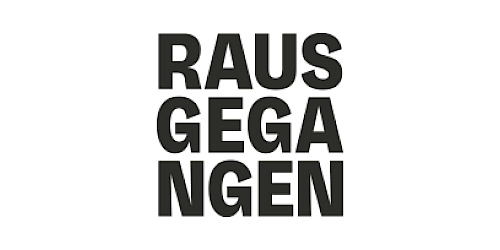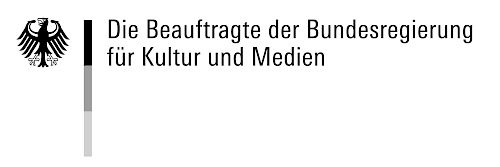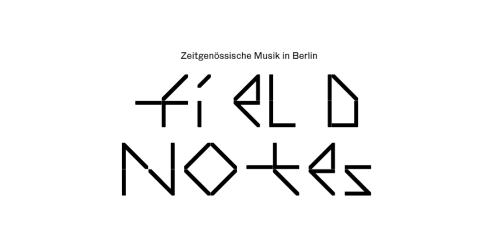Somehow We Can – 11 String Quartets
Solistenensemble Kaleidoskop
Concert
Ticket Prices
Tickets – pay what you can
18 / 24 (recommended) / 30 / 36 Euro
reduced 14 Euro
Duration approx. 130 minutes, two intermissions
In "Somehow We Can", Solistenensemble Kaleidoskop explores the many faces of the string quartet. Curated by Ethan Braun, composer and long-standing artistic partner of the ensemble, the project brings together eleven composers and twelve interpreters who demonstrate the versatility and relevance of this genre together. They let us experience the string quartet as a dynamic and complex web of relationships, as a collective expression of art and society.
Compiled with a keen sense of tonal diversity, cultural contexts and musical idiosyncrasies, these eleven pieces expand the possibilities of the string quartet not only in terms of content but also in form. The compositions range from deconstruction and improvisation to in-depth sonic exploration and poetic intimacy. Some of these works will be performed in Europe for the first time. The programme also allows voices to be heard that often remain marginalised in the canon of New Music, such as those of BiPoC and LGBTQ+ composers. These artists create a musical texture that does not flatten differences, but makes them audible in productive ways, inviting the audience to a polyphonic, shared experience.
Alvin Singleton's “Somehow We Can”, which gives the programme its title, Yuri Umemoto's “Fluffy Pink!” and Sarah Davachi's “Icon Studies II” perfectly exemplify this evening of quartets: Singleton is one of the most distinguished African-American composers but thus far, his work has rarely been performed in Europe. His quartet focuses on the simultaneity and co-existence of various themes without forcing them into a linear progression – a call for letting differences co-exist. With "Fluffy Pink!", Yuri Umemoto, a young composer from Japan, brings a radically different perspective to the programme: playful, exaggerated, and inspired by the aesthetic of anime and otaku culture. Umemoto transforms the string quartet into a many-armed, octopus-like figure that oscillates between virtuoso technique and pop-cultural reference – a fascinating break with classical listening habits. Meanwhile, Sarah Davachis' "Icon Studies II" turns microtonal nuances into monumental sound structures, challenging the perception of time and space and creating a uniquely dense sonic landscape.
Programme
Yuri Umemoto
Fluffy Pink! (2020)
Yaz Lancaster
Neutral Objects (2020)
Misato Mochizuki
Boids (2018)
Sarah Hennies
Affines (2020)
Intermission I
Henry Threadgill
Sixfivetwo (2018)
Sarah Davachi
Icon Studies II (2021)
Wadada Leo Smith
String Quartet Nr. 17 (2024)
Intermission II
Raven Chacon
The Journey of the Horizontal People (2016)
Ted Hearne
Exposure III: Overlay (2019)
Alvin Singleton
Somehow We Can (1994)
Cassandra Miller
Leaving (2011)
Cast


Violin
Mia Bodet
Anna Faber
Malin Grass
Sarah Beth Overcash
Mari Sawada
Biliana Voutchkova
Viola
Ildiko Ludwig
Yodfat Miron
Grégoire Simon
Cello
Isabelle Klemt
Sophie Notte
Michael Rauter
Programme
Ethan Braun
Artistic Direction
Boram Lie
Ethan Braun
Outside Ear
Sarah Saviet
Light
Ariel Efraim Ashbel
Styling
Andra Dumitrascu
Design
HIT
Team Solistenensemble Kaleidoskop
Volker Hormann
Boram Lie
Michael Hohendorf
Nina Braatz
Cast
Violin
Mia Bodet
Anna Faber
Malin Grass
Sarah Beth Overcash
Mari Sawada
Biliana Voutchkova
Viola
Ildiko Ludwig
Yodfat Miron
Grégoire Simon
Cello
Isabelle Klemt
Sophie Notte
Michael Rauter
Programme
Ethan Braun
Artistic Direction
Boram Lie
Ethan Braun
Outside Ear
Sarah Saviet
Light
Ariel Efraim Ashbel
Styling
Andra Dumitrascu
Design
HIT
Team Solistenensemble Kaleidoskop
Volker Hormann
Boram Lie
Michael Hohendorf
Nina Braatz
Biographies


Das Solistenensemble Kaleidoskop wurde 2006 in Berlin gegründet und hat sich seitdem als eines der innovativsten Ensembles im Bereich des experimentellen Musiktheaters etabliert. Mit einem Fokus auf der Erweiterung der Grenzen des traditionellen Konzertformats und im Dialog mit Künstler*innen aus anderen Genres entstehen so Projekte, die immer auch Räume des Miteinanders sind – Orte, an denen Fragen verhandelt werden, die über das rein Musikalische hinausweisen und neue Zukunftsentwürfe denkbar machen.
Ethan Braun ist ein US-amerikanischer Komponist, geboren 1987 in Los Angeles. Er studierte Komposition an der University of California, Los Angeles (UCLA), dem Peabody Conservatory in Baltimore und dem Royal Conservatory in Den Haag. Seinen Doktortitel (DMA) erwarb er an der Yale University. Brauns Werk umfasst Kompositionen für Konzertsaal, Bühne und Museum und zeichnet sich durch die Verbindung von akustischer Musik, elektronischen Medien und performativen Elementen aus. Er lebt und arbeitet derzeit in Berlin.
Biographies
Das Solistenensemble Kaleidoskop wurde 2006 in Berlin gegründet und hat sich seitdem als eines der innovativsten Ensembles im Bereich des experimentellen Musiktheaters etabliert. Mit einem Fokus auf der Erweiterung der Grenzen des traditionellen Konzertformats und im Dialog mit Künstler*innen aus anderen Genres entstehen so Projekte, die immer auch Räume des Miteinanders sind – Orte, an denen Fragen verhandelt werden, die über das rein Musikalische hinausweisen und neue Zukunftsentwürfe denkbar machen.
Ethan Braun ist ein US-amerikanischer Komponist, geboren 1987 in Los Angeles. Er studierte Komposition an der University of California, Los Angeles (UCLA), dem Peabody Conservatory in Baltimore und dem Royal Conservatory in Den Haag. Seinen Doktortitel (DMA) erwarb er an der Yale University. Brauns Werk umfasst Kompositionen für Konzertsaal, Bühne und Museum und zeichnet sich durch die Verbindung von akustischer Musik, elektronischen Medien und performativen Elementen aus. Er lebt und arbeitet derzeit in Berlin.
Programme
Yuri Umemoto
Fluffy Pink! (2020)
Yaz Lancaster
Neutral Objects (2020)
Misato Mochizuki
Boids (2018)
Sarah Hennies
Affines (2020)
Intermission I
Henry Threadgill
Sixfivetwo (2018)
Sarah Davachi
Icon Studies II (2021)
Wadada Leo Smith
String Quartet Nr. 17 (2024)
Intermission II
Raven Chacon
The Journey of the Horizontal People (2016)
Ted Hearne
Exposure III: Overlay (2019)
Alvin Singleton
Somehow We Can (1994)
Cassandra Miller
Leaving (2011)
Credits


A project by Solistenensemble Kaleidoskop. Supported by Musikfonds e.V. with project funding from the Federal Government Commissioner for Culture and the Media and inm - initiative neue musik berlin e.V. / field notes. The Solistenensemble Kaleidoskop receives institutional funding as an independent group without its own venue from the Senate Department for Culture and Social Cohesion. In co-operation with the Radialsystem.
Radialsystem media partnerships: The Berliner, Rausgegangen, tip Berlin, taz. die tageszeitung.
Credits
A project by Solistenensemble Kaleidoskop. Supported by Musikfonds e.V. with project funding from the Federal Government Commissioner for Culture and the Media and inm - initiative neue musik berlin e.V. / field notes. The Solistenensemble Kaleidoskop receives institutional funding as an independent group without its own venue from the Senate Department for Culture and Social Cohesion. In co-operation with the Radialsystem.
Radialsystem media partnerships: The Berliner, Rausgegangen, tip Berlin, taz. die tageszeitung.
In "Somehow We Can", Solistenensemble Kaleidoskop explores the many faces of the string quartet. Curated by Ethan Braun, composer and long-standing artistic partner of the ensemble, the project brings together eleven composers and twelve interpreters who demonstrate the versatility and relevance of this genre together. They let us experience the string quartet as a dynamic and complex web of relationships, as a collective expression of art and society.
Compiled with a keen sense of tonal diversity, cultural contexts and musical idiosyncrasies, these eleven pieces expand the possibilities of the string quartet not only in terms of content but also in form. The compositions range from deconstruction and improvisation to in-depth sonic exploration and poetic intimacy. Some of these works will be performed in Europe for the first time. The programme also allows voices to be heard that often remain marginalised in the canon of New Music, such as those of BiPoC and LGBTQ+ composers. These artists create a musical texture that does not flatten differences, but makes them audible in productive ways, inviting the audience to a polyphonic, shared experience.
Alvin Singleton's “Somehow We Can”, which gives the programme its title, Yuri Umemoto's “Fluffy Pink!” and Sarah Davachi's “Icon Studies II” perfectly exemplify this evening of quartets: Singleton is one of the most distinguished African-American composers but thus far, his work has rarely been performed in Europe. His quartet focuses on the simultaneity and co-existence of various themes without forcing them into a linear progression – a call for letting differences co-exist. With "Fluffy Pink!", Yuri Umemoto, a young composer from Japan, brings a radically different perspective to the programme: playful, exaggerated, and inspired by the aesthetic of anime and otaku culture. Umemoto transforms the string quartet into a many-armed, octopus-like figure that oscillates between virtuoso technique and pop-cultural reference – a fascinating break with classical listening habits. Meanwhile, Sarah Davachis' "Icon Studies II" turns microtonal nuances into monumental sound structures, challenging the perception of time and space and creating a uniquely dense sonic landscape.
Cast
Violin
Mia Bodet
Anna Faber
Malin Grass
Sarah Beth Overcash
Mari Sawada
Biliana Voutchkova
Viola
Ildiko Ludwig
Yodfat Miron
Grégoire Simon
Cello
Isabelle Klemt
Sophie Notte
Michael Rauter
Programme
Ethan Braun
Artistic Direction
Boram Lie
Ethan Braun
Outside Ear
Sarah Saviet
Light
Ariel Efraim Ashbel
Styling
Andra Dumitrascu
Design
HIT
Team Solistenensemble Kaleidoskop
Volker Hormann
Boram Lie
Michael Hohendorf
Nina Braatz
Biographies
Das Solistenensemble Kaleidoskop wurde 2006 in Berlin gegründet und hat sich seitdem als eines der innovativsten Ensembles im Bereich des experimentellen Musiktheaters etabliert. Mit einem Fokus auf der Erweiterung der Grenzen des traditionellen Konzertformats und im Dialog mit Künstler*innen aus anderen Genres entstehen so Projekte, die immer auch Räume des Miteinanders sind – Orte, an denen Fragen verhandelt werden, die über das rein Musikalische hinausweisen und neue Zukunftsentwürfe denkbar machen.
Ethan Braun ist ein US-amerikanischer Komponist, geboren 1987 in Los Angeles. Er studierte Komposition an der University of California, Los Angeles (UCLA), dem Peabody Conservatory in Baltimore und dem Royal Conservatory in Den Haag. Seinen Doktortitel (DMA) erwarb er an der Yale University. Brauns Werk umfasst Kompositionen für Konzertsaal, Bühne und Museum und zeichnet sich durch die Verbindung von akustischer Musik, elektronischen Medien und performativen Elementen aus. Er lebt und arbeitet derzeit in Berlin.
Related










